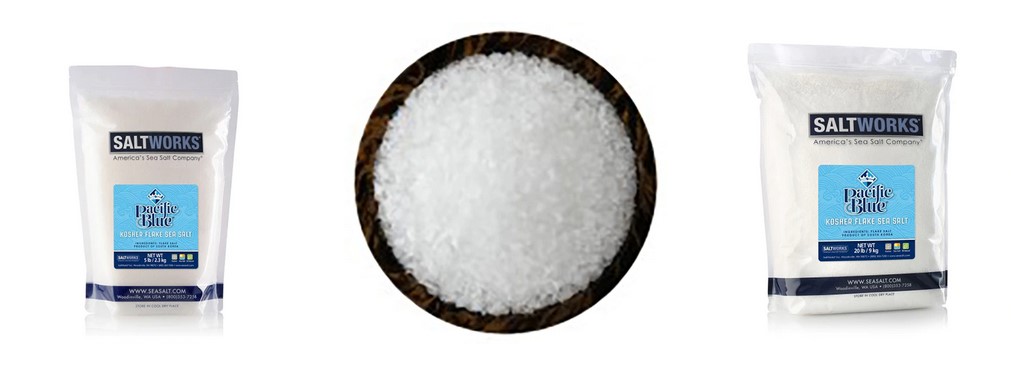It’s Time You Got Familiar With Kosher Salt
15th Nov 2019
Ever picked up an exciting recipe only to come across an obscure ingredient you’ve never heard of? It’s hard to imagine salt being one of those surprise ingredients but with growth of gourmet varieties in the mainstream, more and more delicious recipes are popping up with unusual salts that you’re likely not familiar with. If one of those is Kosher Salt, stick with us!
What is Kosher salt?
It sounds like a straightforward name, but Kosher salt isn’t just any old salt that has been blessed to become kosher. It’s actually the salt that is used during the specific process of slaughtering kosher certified meat. During this process, salt is used to draw blood from the animal, so it was therefore called koshering salt. Overtime as koshering salt was packaged, labelled and sold to consumers, it became Kosher salt.
How is Kosher salt made?
Making any variety of salt involves harvesting it from the sea or rock deposits under the earth’s surface through evaporation processes. When salt rocks are collected from the earth, water is pumped into them, creating a brine from which the salt is evaporated. With the water gone, the salt is then able to be processed in a number of ways, which is how we end up with a large range of varieties. Kosher salt is made the same way as any other variety, but its use in the koshering process that gives Kosher salt its name.
Is it Kosher?
Not always! The Kosher salt we sell here at The Salt Box is indeed kosher, however not all salts labelled as Kosher salt are technically kosher. Although any pure salt is technically kosher, the refinement and production process can change this. Some varieties you see will be certified kosher, meaning they’ve been blessed by a Jewish Rabbi, but it’s only the salts used during the koshering process that are actually Kosher salts.
How is Kosher salt different to table salt and sea salt?
The biggest difference is in the texture of Kosher salt. It has a fairly similar taste to regular sea salt or table salt blends, if not slightly milder. Kosher salt can be flat or pyramidal in shape depending on the evaporation process used but it’s always more coarse than regular table salt as it’s less refined and more pure. Sea salt is the least refined of the three varieties and the coarsest in texture. Sea salt also has a slightly more briny taste than that of table and Kosher salts as it’s harvested from the ocean.
When to use Kosher salt?
Because of its chunkier size and coarser texture, Kosher salt is perfect for seasoning dishes by hand both during the cooking process and when plating up. It allows for a more even distribution through your dish and on top of your meal and it’s easier to pick up and sprinkle from between your fingers.
The briny taste of sea salt often makes it the wrong accompaniment to finer flavoured dishes, as does the iodised flavour of table salt, and so Kosher salt is a better alternative. It has a less intense, more balanced salty taste making it easy to evenly season dishes without overpowering the delicate flavours of your meal.
Kosher salt is also a winner for baking when a recipe calls for a coarse salt. You should be wary though that substituting for Kosher salt in baking recipes that don’t call specifically for Kosher salt of a coarse salt can be tricky as the inconsistent grain size and less intense flavour make it harder to measure. But that doesn’t mean it can’t be done! Just start slow and add a little sprinkle as needed.
Kosher salt is also ideal for pickling and brining because it has no added anti-caking agents, which can turn the liquid brown. It is also the salt of choice for smoking as the smoke can penetrate the layers of the flakes, infusing all that smoky goodness.
Give this kitchen all-rounder a try for yourself. Shop our delicious, all-natural range
here.


